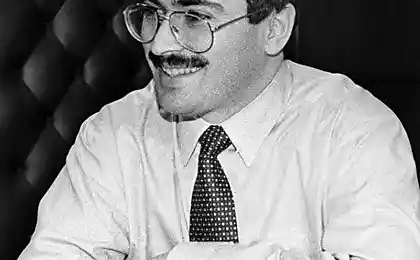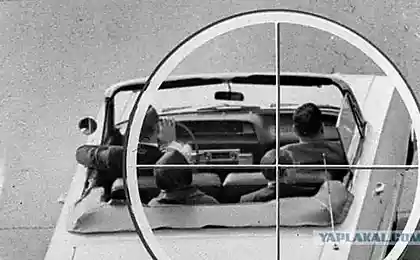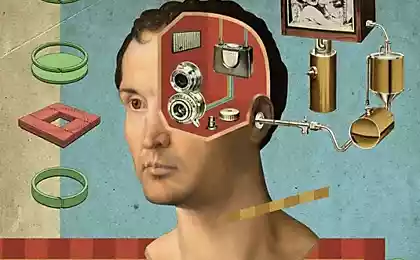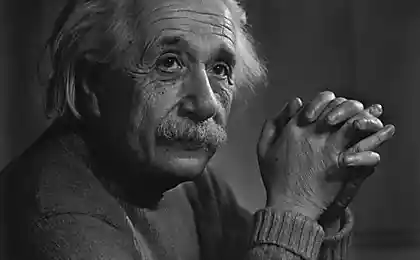571
Harvey Molotch: you Can analyze the world through any object

© Juan Stockenstroom
Harvey Molotch — founder of the sociology of things and one of the key figures in urban studies. It seems that he does everything in the world — explores the underground economy of cities, persuasive communication between black men and white women in wealthy areas of new York, wrote a fundamental work on toilets, and in 1979, accused American television in an attempt to distort reality and collaboration with the authorities. In April, he spoke at the lecture InLiberty and Esquire in Moscow and St. Petersburg.
— Have you examined the toilets, toasters, cities — and now airports. Sociology what is the strangest thing you did?
— I think that's what I do now in Abu Dhabi. This is the strangest place I have been to in my entire life — an amazing mixture of Islam, the official religion in the country, and tourism, thanks to which everything must be world class. On the one hand, in Abu Dhabi there is a strong tradition, which is reflected even in the clothes they wear in this heat, in the desert so far — and on the other hand, it is a very cosmopolitan country. And first is mixed with the second in a very strange way.
I mean, it's a schizophrenic culture?
— It sounds like a clinical diagnosis. But you are on the right track, and I'm trying to understand how it really gets along with each other. I'll tell you my favorite example: pork. In Islam it is forbidden, but in all supermarkets always have special room where you can buy it. In Abu Dhabi many Western supermarkets, there are also French and English networks, and shopping in General is similar to all the modern shopping world. But somewhere in the back corner of the supermarket there is a door and on it a sign, and the sign says that Muslims can't come in here. You push the button, the door opens and you see a huge room where there is nothing but pork. You never see so much pork at the same time. Perhaps if you will not visit, you do not even know how many items contain pork. For example, many American meals, is fried in lard.
— Why do we need sociology? And any object can tell us about our society, something interesting, for example, a paperclip or a tissue?
— Any object is interesting. Here you are called a tissue. We take it for granted — but in the fifteenth century people did not have napkins. In Abu Dhabi there is no pad that is very bagatih tourist hotels have napkins, but the common people they usually, no. Instead, they have a box of handkerchiefs. This is interesting because in fact we could well do without napkins. In the end, for this purpose you can even use the sleeve, and then wash the shirt as we wash everything else. It's not as bad as it may seem. There is a wonderful book called "the Process of civilization," and it tells about the introduction of the etiquette in Europe, about active participation of the French in the process. Etiquette, in the end, the French word. Etiquette is the way in which people demonstrate that they are civilized, and that's why on the table of rich people you can find not only a swipe. There are three or four forks, two knives, three glasses. You should know exactly when and how they need to use. A method of creating differences between people, how to exclude a certain category of people who, for one reason or another are unable to participate in this process — that's why napkins are interesting.
— So, we should not be treated any snobby things, even the most seemingly minor. How then do you choose from all this variety of objects for research?
— I'm interested in everything. When I teach, I invite students to bring anything they want — the idea is that we can analyze the world through any object. In engineering there is a term "reverse engineering": for example, you want to understand how the iPhone and to do this, dismantle it piece by piece, detail by detail, step by step — until you understand in what order and how it should be reassembled. This is a good method to deal with all — to analyze the napkin, the table, anything. When you analyze these things in parts, remove them from the layer table, you learn the history of the object, its cultural context. And this will go anything.
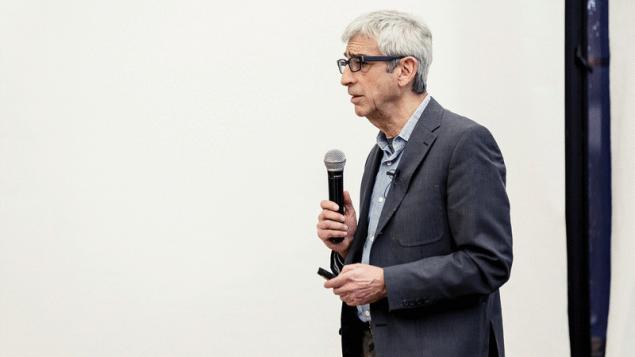
On the other hand, you mentioned the toilets — it is also interesting to think about this is very important because for many researchers the toilets is taboo. Not that anyone but me, not engaged — but very, very small number of researchers interested in the topic. For me it is interesting to study something that is forbidden to discuss, and it concerns my work on the topic of security. This is another danger zone is the threat a bit differently, but this is exactly the same taboo, and to deal with this topic means to challenge society.
— Without any of the things you could do in your life — and if you remember their history, own, say, a sociology of things that surround you?
One of them you named earlier, in its very first issue — the toaster. In the US it is very important to have a toaster. We inherited it from the British, but in other countries it can be found much less frequently — for example, in Italy almost no one has a toaster. It's like Kleenex — as we can do without napkins, so we can perfectly well do without the toaster. I like them very much, and when I was a kid, I loved to press the button and watch as hot toast jumps from the toaster. I did it again and again, until, until my mom began to argue that I should not translate the bread. It was so cool, the real magic, the miracle of automation — 40-e and 50-e years we were only at the dawn of the auto world. And technology has brought us in the rapture.
— What is the future of how you think the Humanities? In a postmodern era it seems that all the studies are meaningless — and with equal success can both refute and confirm any thesis.
This is a very important question. Postructuralism deals with issues with which many researchers, philosophers and writers were engaged in long before that. Russian writers have long been depressed and dealt with the meaning of life, whether a life to live, the uncertainty of life. Postructuralism is just a fly on the wall, where the wall is a fundamental human anxiety, lack of confidence and certainty. I also sometimes worried about that in the world there is no absolute truth. But, like any other human being, my life is based on chance. In this I am quite old-fashioned. I'm a sociologist, and many colleagues believe in the triumph of science, the possibility of absolute knowledge — this way, American sociologists more susceptible than the European. In this respect, I'm not a true believer, I do not share their naive belief in the possibility of the existence of absolute truth.
— In your study media you show that media fail, showing the objective reality, the study of airports — the government only creates the illusion of protection of its inhabitants. You generally an optimist?
— Of course, not optimistic of the result, showing that the king is naked. But it is optimistic — because the result may benefit. If you show that the king is naked, people can become less tolerant of their king.
— I have to ask: how do you assess the media today? You have begun to show the political background of the news in 1969, in the case of the oil spill — but what is happening now, is it justified hysteria about the total lack of professionalism and commercialization of journalism?
— On the one hand, there is a concentration of legitimacy. It used to be like: around the world, especially in USA and Europe, each city had its own newspaper, and this newspaper was incredibly important — more important than radio, and even television. Now Newspapers are in decline. But a number of Newspapers are still important — for example, the New York Times and the Guardian in England. Guardian is a role model because of her owners is a non — profit organization. Sometimes I wish right billionaires bought the New York Times. Now the newspaper is owned by the family, and it is well operated company, but what's next? Technology allows everyone in the world to download the New York Times and read it. In fact, of course, it can do not every man — in many countries there is censorship, as, for example, in Abu Dhabi. This means that even if Newspapers are becoming less in the world there are more people that can access this small number of sources. Plus there are more online publications. You can't say that I share the General pessimistic mood — just the landscape has changed.
— New Yorker told me that you gave a lecture about the design of toilets for architecture students at new York University. There you discussed, in particular, the prospect of creating toilets for both sexes — and demanded to take this decision seriously, because as you yourself said then: "this is not a building solution is an intelligent decision." What other smart solutions in the field of architecture is often mistaken for a building?
— Although I participated in many construction projects and worked with famous architects, but with skill I, unfortunately, can speak only about one thing — and it's toilets. Toilets are often given the weakest architects in architects with the lowest status. If someone in General meeting will try to talk about toilets, and above it all will laugh. Another important issue is the environment. Everybody's talking about it, but no hurry to fully implement all these great ideas to life — even in the capitalist countries. People build what they want to build to satisfy your ego or benefit. This, incidentally, makes the middle East so interesting — Abu Dhabi and Dubai are absolutely not restrain themselves in construction. They did not stop even economic expediency — they build the tallest buildings in the world in the desert, it's completely pointless. Is it ego.
— Say that democracy does not build palaces.
— What about the Manhattan? But you are right: in Manhattan to build more than 50 or 60 floors uneconomical. Higher buildings are also appealing to someone's ego, give some people the prestige to live above others, this is also no financial sense.
— You do a lot of racial and ethnic issues. Do you think we will become more tolerant in the future? What is the place of religion in the future of mankind? And do you think that wars will become less or more?
I have no simple answer to this question. Skin color has always been an important aspect of social hierarchy in the colonial countries, where the situation has not changed. But in the middle East, local residents occupy a higher place on the social ladder and run by white professionals from the old world who are working on them is a doctor and so on. Here we can see the opposite situation, and I find it interesting. Things in the world are different depending on where you look. There is, for example, is not the most prosperous Africa, but the current President of the United States — African American, so he, at least, defines itself. In a world of many changes, but I still continues to amaze how national differences can provoke so much violence — even in people with one skin color. Remember the former Yugoslavia, Serbia and Croatia who fought with the utmost cruelty. World war II is not even worth talking — it's incredible stiffness miraculously emerged in the countries with the highest level of culture.
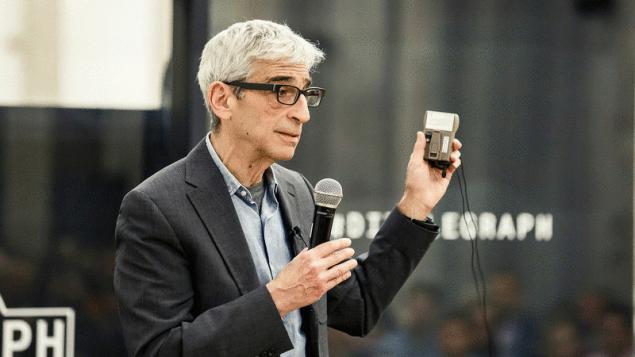
— A threat to mankind we should fear the most?
— I have a ready answer — I thought that someone someday will ask me about it. (Laughs) For me it is climate change. I think this is a deep sociological problem. It can be called a collective action problem: the problem can be solved only by all the people together, coordinating their actions. The whole country needs to change its economy in favour of the environment, and sometimes these decisions are contrary to the interests of the individual. The country would be better if you rode the bus, not drive. At the country level we can theoretically reduce our carbon footprint — but how to solve this problem at the level of the world? It will truly be the most difficult challenge that the world has faced ever.
— With the development of big data, the control of the government is becoming more serious. At which point the control becomes humiliating?
It's hard to say — I see a lot of young people who like to exhibit themselves. I know that Google knows everything about me and assume that I am protected just because a pretty boring person and I don't pay so much attention. Control is another aspect. Everyone thought that the cameras will be a tool of control and pressure — but in the US the camera became the tool by which people protest against the police. Don't know whether this is in Russia, but we had released the video, which the police mistreating blacks. They caused a huge outcry.
— Today you will be talking about security. Security as paranoia, inflated to the scale at which we see it today is actually the invention of our century?
— Many governments are encouraging their citizens that they are in trouble, and only the government can make their lives safer. We know that's not true — and was the cause of many wars, the mobilization of the population. All these words that need to kill the enemy before he kills you first. I think that the course of history more and more people included in the discussion of these issues. In the XVII century there was no television, the population could not read, so there is no newspaper. The public has not yet formed — and today, public debates are becoming an important component of these solutions. Although, of course, there are Pro-government activists who support this discourse — but it is also not an invention of our time. Remember the book "1984"? Orwell also thought about all of this.
Why do you call airports "security"?
— This term used to me to describe how the government creates special institutions, so that the population felt in greater danger and at the same time thought that the government saves them. And for this, arranged for a special performance. I understand the situation a little differently. I think people in General feel in danger — we are all going to die eventually, and that will not be a happy ending. So worry is appropriate. Happen when the terrorist acts in new York in September 2001 or as the incident in Moscow, which, incidentally, was much more than in the US, then people start to feel especially anxious and require the government to get something done. The government is doing something- and it just demonstrates the theatre. No matter if it had a meaning, whether it is effective, the government simply had to do something, and they did, they simply had no choice.
— Which airport do you hate the most?
Kennedy — I use it the most. He is very big, fussy, he's American — from all airports of the world American the most aggressive. New York airport workers are constantly screaming at you when you go through security: "Hurry! Get dressed quickly!" It's very unnerving.
— You say that the United States enforces its safety standards. Rastko Mocnik, speaking of globalization, calling it the latest of the Anglo-Saxon colonization. You agree with him?
I can't fully agree — the world is becoming more multipolar today. And more complex. But this is a fair comment — for example, we talked about airports, and for me it is very interesting that the United States filled the order of cases in the aerial industry worldwide. Many aircraft made in the United States, the Federal aviation Agency has worked on a variety of standards together with companies producing aircraft, transport companies. And now, these standards apply universally — that the plane could land in the U.S., it must comply with the standards. USA is the biggest market in the world, so any airlines have to comply with these standards. There is a curious dominance of the United States without the participation of the military forces, which operates almost in a judicial order.
— I really like your tips published on the website of Durham University — tips for aspiring authors and researchers. There you suggest to make friends with the waiters and write for them — and avoid those foods that the stomach begins to swell. But you do what the most useful advice he received in life?
I can remember the text well-known songs — It's still the same old story. A fight for love and glory. Whatever happened — it's the same old story, a fight for fame and love. Published
P. S. And remember, only by changing their consumption — together we change the world! ©
Source: theoryandpractice.ru
